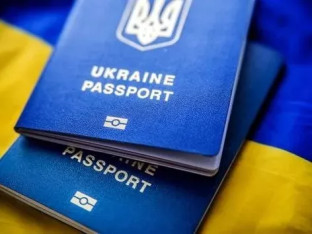lawyer, 23 years of experience in enforcement.
Decisions on administrative sanctions in the form of fines are carried out exclusively by the bodies of the state executive service.
Resolutions on administrative fines shall be submitted for execution by the bodies that impose such fines, these may be police bodies, court, administrative commissions and other bodies and officials who have the right to impose administrative fines.
When a decision on the collection of a fine is presented accordingly, provided that such a document meets the requirements of the Law of Ukraine "On Enforcement Proceedings", the executor opens enforcement proceedings and, as a rule, immediately imposes a seizure on the debtor's funds, as well as checks the presence of accounts, places of work and vehicles registered under the debtor. If the amount of the fine is significant, the state executor also inspects the immovable property and may seize both movable and immovable property.
Paying attention! When enforcement proceedings are opened (if the enforcement document contains the identification code of the person subject to administrative liability), the borzhnik is automatically entered into the Unified Register of Debtors.
Seizure of the debtor's funds and property is imposed within the amount to be recovered, taking into account the enforcement fee and costs of enforcement proceedings. If the seizure is imposed on all property or funds of the debtor, it can be appealed.
The executor imposes a seizure on the debtor's funds automatically using the automated system of enforcement proceedings, which is why decisions on such seizure reach banking institutions quite quickly. Simultaneously with the seizure of the debtor's funds, the executor checks the balances on open accounts, which also happens automatically, and information about the availability of funds on the accounts also reaches the executor quite quickly. If there is a sufficient amount on the accounts to repay the fine (taking into account the enforcement fee and costs of enforcement proceedings) for enforcement proceedings, the seizure of property in such proceedings will be unlawful.
I pay attention! As for the automated exchange of the performer's data with banking institutions, as of today, not all banking institutions are connected yet, in connection with which there are some banks from which the information does not reach the performers. It is worth noting that with some banking institutions there is a problem of late processing by them of resolutions on the seizure of the debtor's funds and, accordingly, the removal of such seizure. Some banking institutions may process orders on seizure of funds several months after the end of enforcement proceedings.
There are quite often situations where a resolution on the collection of a fine is received for execution, and this fine has already been paid, and in some cases, the executor can re-debit the already paid fine from the debtor's account. In such a case, it is necessary to immediately apply to the relevant executor, with a statement on the return of the forcibly debited funds, and at the same time attach a confirmation that the specified fine has been paid earlier.
Such situations arise due to the fact that bodies and officials imposing administrative fines, as a rule, do not notify the executive service about the independent payment of fines or the debtor, when paying the fine, incorrectly filled in the purpose of payment, in connection with which the responsible individuals failed to timely and correctly identify such payment.
I pay attention! If the fine is paid before the opening of enforcement proceedings, the enforcement fee and expenses related to enforcement actions are not charged.
When carrying out this category of executive proceedings, the executor, in case of lack of funds on the account, and when the debtor's place of work is discovered, is obliged to send a resolution to the debtor's place of work for deductions from wages. Such deductions cannot exceed 20% after taxes.
In case of lack of funds, place of work and in case of discovery of the debtor's vehicle, the executor may declare such property wanted.
When paying the debt due to executive proceedings or canceling the resolution on bringing to administrative responsibility, the executor is obliged to remove all arrest imposed during the implementation of executive proceedings no later than the next day. Withdrawal from the Unified register of debtors occurs automatically when the relevant resolution on the end of enforcement proceedings is issued.
Therefore, in the presence of decisions of this category, the help of a lawyer is essential in some cases, because sometimes situations arise that violate the debtor's rights, and in some cases create difficult life situations. A lawyer or an attorney during such executions will provide legal services that will help to preserve and protect the rights of the debtor, and in some cases also of other persons, one way or another connected with the parties to the enforcement proceedings. Legal advice or legal services can be obtained at the Legal Service "Consultat", and accordingly, the managers will select a specialist who will help provide support in the execution of this category of cases, as well as in the case of illegal debiting of funds from your accounts, help them return through pre-trial dispute regulation of disputes and sometimes and there may be judicial dispute regulation.
































